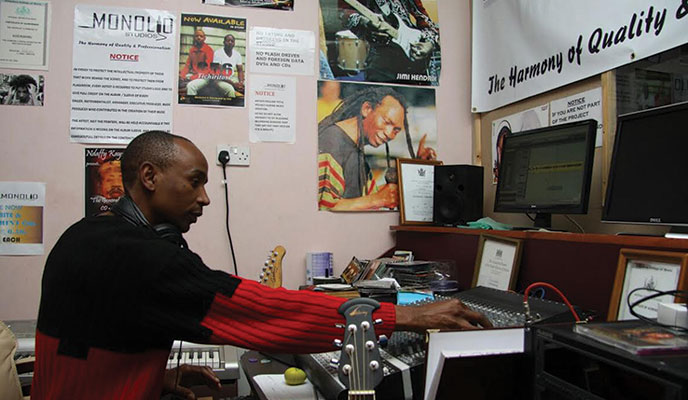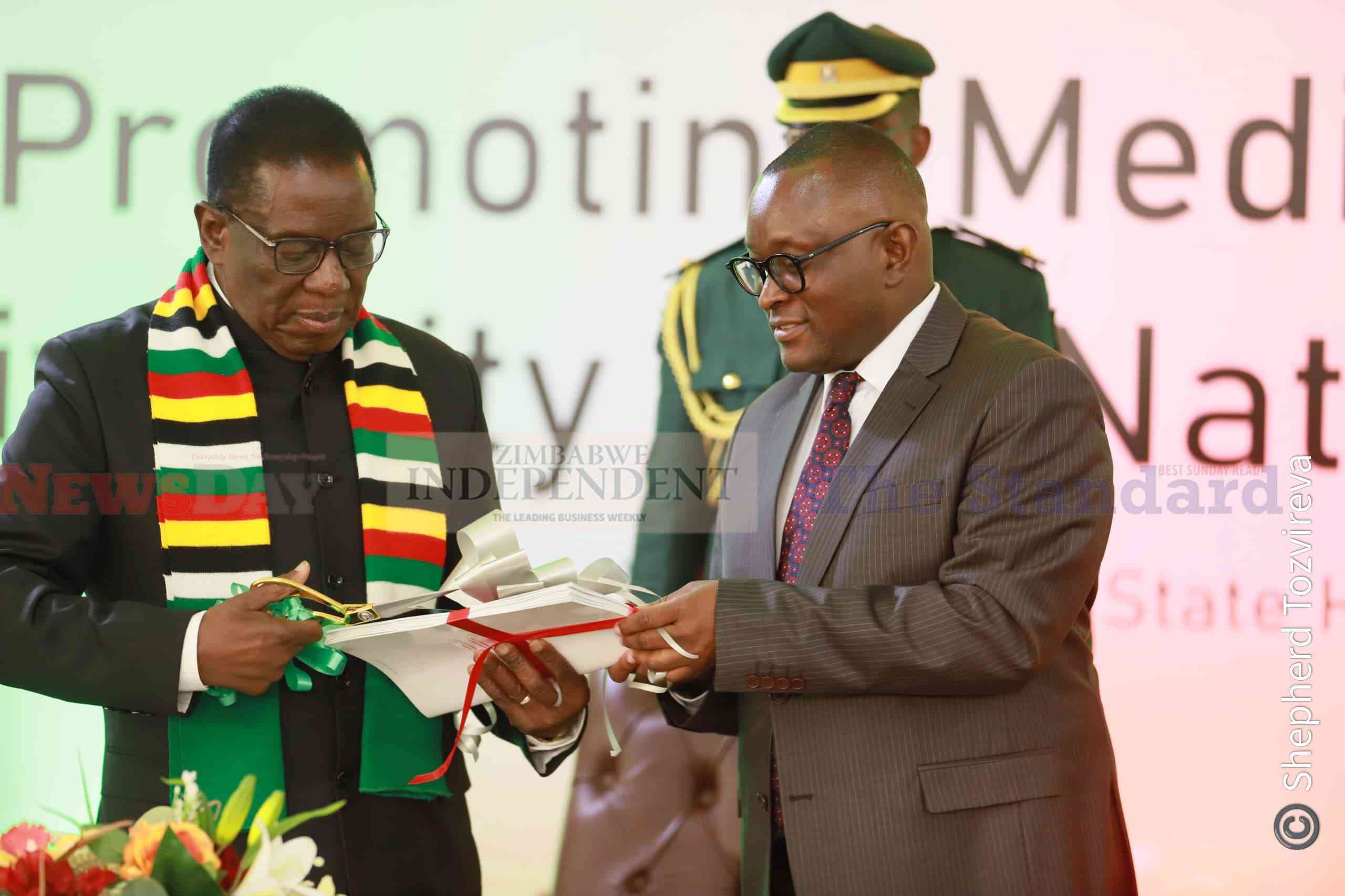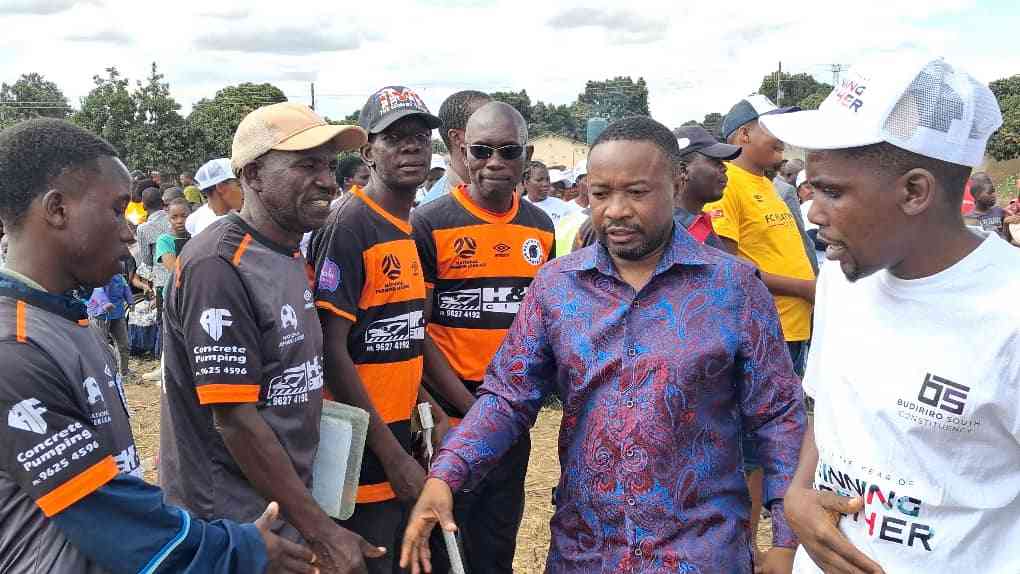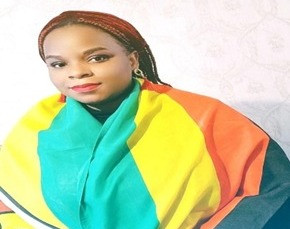
REOWNED multi-instrumentalist- cum music producer Clive Mono Mukundu who owns Monolio Recording Stable continues to shine in his work.
Mono Mukundu was born Clive Mukundu to Joyce Gwatidzo and George Mukundu on Tuesday September 15 1970. He is married to Jean Kandeya and blessed with two children, Tariro (20) and Takakunda (16).
At present, Mono has done music for a just-released Jamaican documentary called The Price of Memory. NewsDay Arts reporter Winstone Antonio (ND) caught up with Mukundu (CM) and spoke about his future plans with his ambitions being to run a big record label in Zimbabwe. Below are excerpts of the interview.
ND: When did you discover your passion for music?
CM: Around the age of nine. I discovered that I could compose music. That’s the same period I made my first home-made tin guitar. And by the time I went to secondary school, I had made up my mind that I was going to take music as a job.
ND: Can you say you were born a music producer?
CM: I was born a musician. Being a producer is something that you discover while in the business. It is a gift within a gift, but still not every musician can be a producer.
ND: What challenges did you face during the early stages of your career?
- Chamisa under fire over US$120K donation
- Mavhunga puts DeMbare into Chibuku quarterfinals
- Pension funds bet on Cabora Bassa oilfields
- Councils defy govt fire tender directive
Keep Reading
CM: I lacked family support as my father wanted me to become a teacher or a professional in any formal job. Thus, as a youngster, I was subjected to corporal punishment each time he saw me holding a musical instrument. He only gave up beating me later when he realised that I was not giving up. Recording was not so easy back then. When I started, there was only one studio and one had to go through a tough audition. So when I was 17 (1988) with my first band, we had more than 10 auditions and failed all of them until the band broke up because my fellow band members were discouraged. They quit. Worse still, we had no money for transport and food so we had to walk from Kuwadzana to Southerton hungry. Auditions with my second and third bands also failed and I only managed to record with Somandla Ndebele with my third band Chikokoko in 1992.
ND: Who inspired you to venture into music?
CM: As a guitarist I was inspired by two guitarists, Jonah “Sabhuku” Sithole and Jimmy Hendrix while in music composition, I was greatly inspired by Bob Marley that I almost became a Rastafarian. To be a producer, I was inspired by Andrew Baird, Fortune Muparutsa and Quincy Jones.
ND: Interesting. Anyway, what does a music producer do?
CM: A music producer is in charge of the final outcome of a music project. He is the one who gives creative guidance to the artiste and gathers ideas for the project. Normally good music producers are experienced musicians who have worked in bands and studios, and acquired a great deal of knowledge first hand.
ND: So as a producer what is your role when an aspiring musician walks into the studio for the first time with the intention to record?
CM: First thing is to make sure that he has the talent. A lot of people want to be musicians when they do not have the talent.
ND: How much time does it take you to complete a polished recording?
CM: The amount of time taken to complete a song differs from song to song and from artiste to artiste. Most people think a five-minute song takes five minutes to record, a three-minute song can take you 20 hours.
ND: Usually most aspiring musicians, for example dancehall chanters, are either unemployed or still in school and have no source of income to pay for studio time. What mechanisms have you created to bridge this gap?
CM: If one does not have money for studio time, it is the same as someone who wants bread, but has no money to buy it. The norm is for that person to look for someone to give him the money. He does not go and ask for free bread from the shopkeeper. The same thing with me, if someone does not have studio time he has to look for sponsors. If I am impressed I can also help in looking for sponsors. What I cannot do is offer free services because I have bills to pay.
ND: From the look of things, your work is both technical and creative. How do the two aspects combine?
CM: A modern-day music producer has to know the technical side of things as well to be most effective. Long back you could just be a producer who did not even know how to engineer, but the problem is the engineer can mess things up and if you cannot engineer the project your name will be messed up.
ND: When can we say you had a breakthrough in the industry?
CM: My breakthrough came in 2002. That was when I started surviving on music.
ND: Since you have been in the industry for quite long, have you ever won an award?
CM: I have never won any national award. It makes me laugh at times when some newspapers refer to me as the “award-winning” producer or musician. The only award I have is the college of music best guitar student award (2003).
ND: What type of music do you listen to?
CM: As a music producer I listen to everything so that I also learn and keep up with trends, but for the sake of normal entertainment while relaxing I enjoy listening to Roots reggae and mbira-inspired music of Thomas Mapfumo, Oliver Mtukudzi, Chiwoniso Maraire, Fungisai Zavkavapano and Hope Masike, among others.











